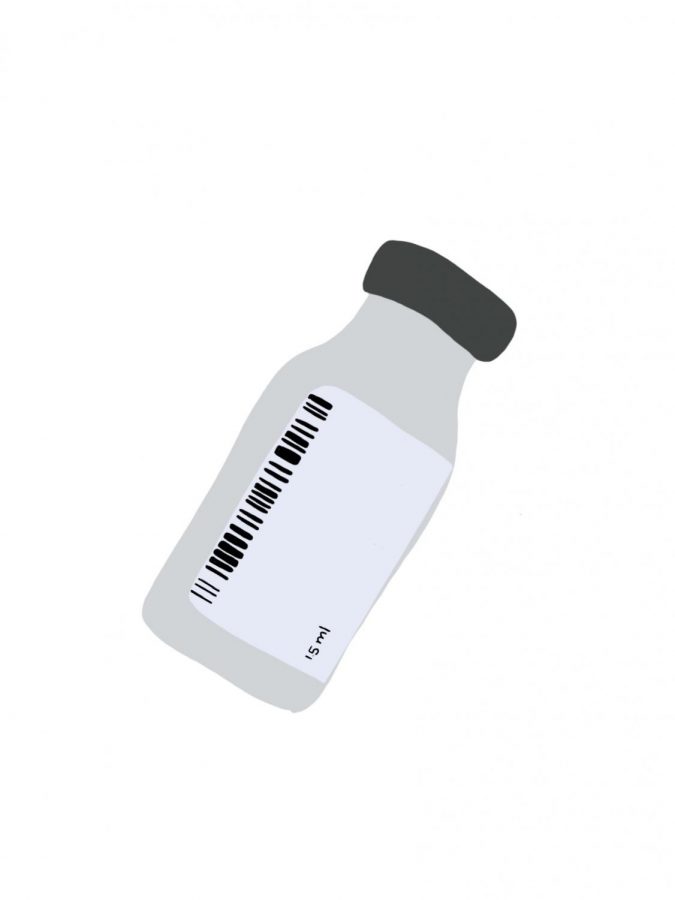Vaccine at SLU: Where Are We Now?
On March 5, Saint Louis University issued a message to notify all students and staff that the University had acquired more doses of the Moderna COVID-19 vaccine by way of the Missouri National Guard. This announcement also had a survey for students to complete regarding vaccine eligibility. COVID-19 vaccine research and development has been a prominent part of SLU’s plan to handle the pandemic within its own campus. Generally speaking, vaccine research is no small task, a point emphasized by Daniel Hoft, Ph.D., head of the Center for Vaccine Development, who elaborated on the long process of creating the vaccine. “It starts with identifying a potential target for a vaccine, of course. Is it a big enough problem to develop a vaccine? Are the consequences severe enough that we want to prevent it?”
After addressing these preliminary questions, “then there is initial preclinical work that needs to be done. You need to know what type of vaccine you’re gonna make: are you gonna make a RNA vaccine, a protein based vaccine, a viral-vector vaccine, virus-like particle type vaccine, or other newer methods?” When COVID-19 was identified back in the spring semester of last year, there was no question for SLU researchers, led by Hoft, that a vaccine was in order, due to mass disruption it caused through both its infection rate and economic disruption. “The magnitude in mortality as well as the complications that are occurring in many people in COVID-19, that’s affecting everyone in the world and it’s spreading like wildfire,” Hoft said, “paralyzed our economies, and that has become a divisive force in politics.”
SLU got right to work researching potential treatments for COVID-19, as well as potential vaccine technology. In March 2020, the same month in which in-person instruction was halted, SLU initiated an Adaptive COVID-19 Treatment Trial to determine the effectiveness of Remdesiver on treating COVID-19—with Remdesiver eventually being approved by the FDA during October. In August of 2020, SLU’s Center for Vaccine Development began recruiting participants for a Phase 3 trial of the Moderna vaccine in order to better understand its efficacy. According to Dr. Horton, by the end of the semester, SLU was monitoring the various research studies that were released. With the release of vaccines from companies like Moderna and Pfizer-BioNTech, SLU began applying through the state to be a provider of COVID-19 vaccines. “Dr. Terri Rebmann and I led the efforts on that [applying for the vaccine],” Horton shared, “we got rejected five or six times before they [the state] finally said we got approved.”
Regarding SLU being an approved vaccine provider for the state of Missouri, Horton noted that the university now stores some of the vaccine for the National Guard. “It’s a collaborative effort working and speaking with them about our needs, as well as seeing what their needs were,” Horton said, “when the Johnson and Johnson vaccine got approved, they were generously able to give us some of the Moderna vaccine that was given to them.” Since there are different storage requirements between the vaccines, SLU’s Center for Vaccine Development is involved in organizing the ordering of vaccines and ensuring that there are adequate storage units for whichever vaccine ends up being supplied. Horton elaborated: “They had the ultra-deep freeze to store the Pfizer vaccine, and the vaccine refrigerator for the Moderna [vaccine],” adding, “we had to make two different plans since we weren’t sure which ones we were gonna get.”
As of now, SLU’s distribution of vaccines is based on Missouri’s current phase/tier system for vaccine prioritization. Missouri is currently prioritizing everyone who falls into either Phase 1A or Phase 1B of their vaccination plan: which includes high-risk individuals, first responders, officials required for government continuity, pre K-12 school officials and several other groups. According to Horton, Phase 2 of Missouri’s vaccination plan—which would cover Higher Education officials like the staff and faculty of SLU—will become available on March 29, whereas Phase 3—which would be everyone else who has not yet been vaccinated, including SLU’s student population—will be available by April 9.
Even with the current availability of COVID-19 vaccines, there is still some more research that can be done regarding their effectiveness. Hoft currently lists the top concern for SLU and the rest of the world is keeping up with COVID-19’s new mutated variants. “These variants of concern are EOC viruses that have mutated, in particular to become more infectious,” Hoft said, “if someone has been vaccinated and developed an immune response to the original virus, the new virus can overcome that by mutating.” Hoft also noted the necessity of looking more closely at rare side effects reported in COVID-19 vaccines to gain better understanding of immune responses, specifically emphasizing that, “One of the things we’re doing here [at SLU] is starting a trial of a second-generation COVID-19 vaccine that not only targets antibody response, but a strong T-cell response as well.”
Your donation will support the student journalists of Saint Louis University.




